In F# SAFE stack there is a DU type, which defines all types of messages flowing between server and client. In sample application there are <10 of them, I looked on provided examples - all of them have not many possible types. But what if the application is not small - there will be hundreds of types in DU; which will become hard to maintain. So I decided to divide this type in sub-types and put logic in corresponding files.
Here is my simplified type:
type Msg2 =
| LoginMsg of LoginState
| RegisterMsg of RegisterState
| ViewUpdateMsg of ViewUpdateState
Login state is defined in another file:
type LoginState =
| Login
| LogInResult of LoginResult
Login module works with logins:
let workWithLogin (model: Model) (msg: LoginState) (todosApi: ITodosApi) : Model * Cmd<LoginState> =
match msg with
| LoginState.Login ->
let result =
Cmd.OfAsync.perform todosApi.login model.InputData LoginState.LogInResult
model, result
| LoginState.LogInResult data ->
{ model with
LoginState = getVal data.Message
Token = data.Token },
Cmd.none
Note that it returns Model * Cmd<LoginState>.
Now I need to fix my update function:
let update2 (msg: Msg2) (model: Model) : Model * Cmd<Msg2> =
match msg with
| LoginMsg n ->
let ret = workWithLogin model n todosApi
model, snd ret
| RegisterMsg n -> ...
| ViewUpdateMsg n -> ...
The problem here is that I get Cmd<LoginState> from login module and need to convert it to Cmd<Msg2> somehow.
 So I either need to create new
So I either need to create new Msg2 type or convert DU variant LoginMsg of LoginState to Msg2. I dont understand how to get LogInResult data from Cmd<LoginState>.
How can I fix this? How the problem with many message types is solved in big projects?